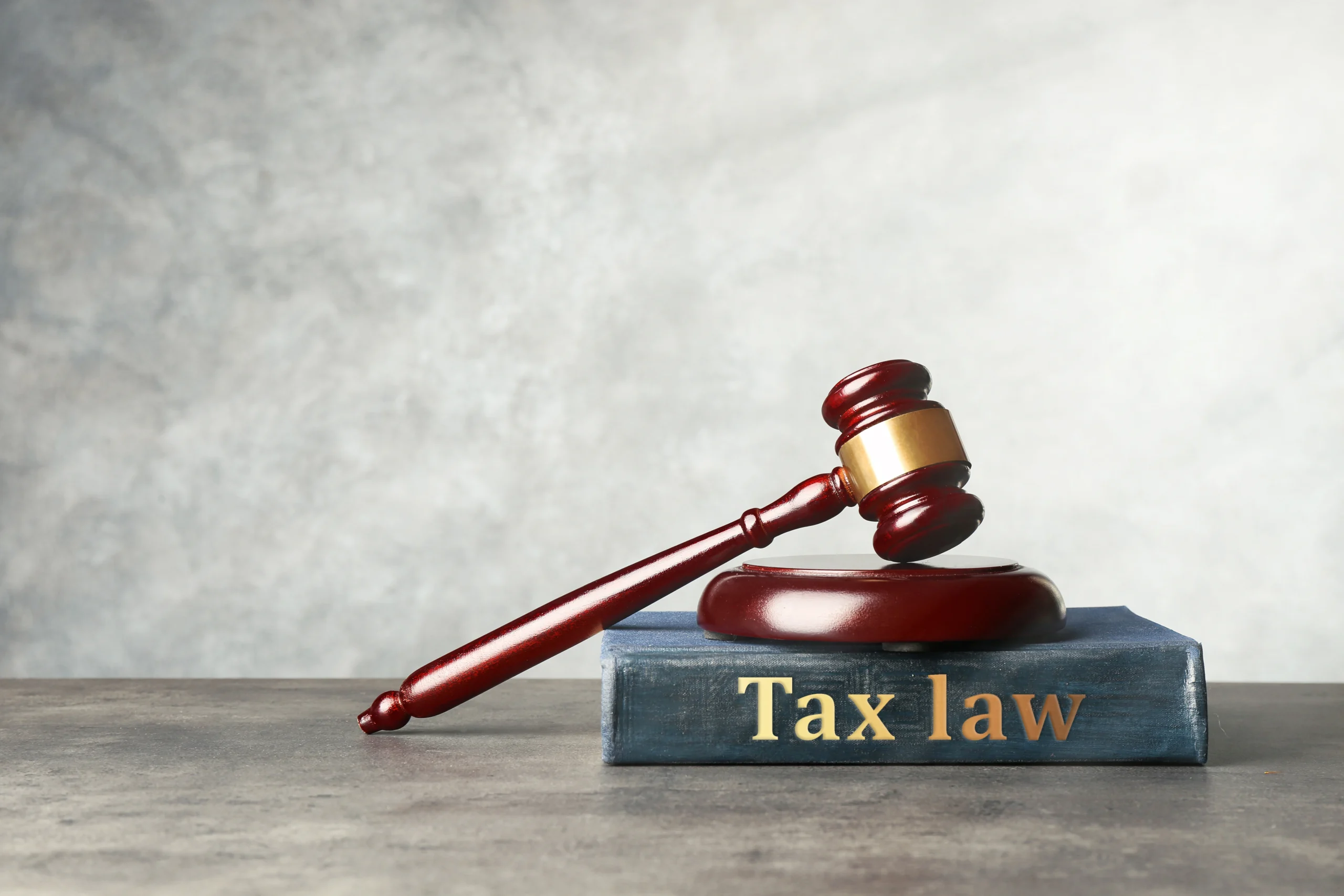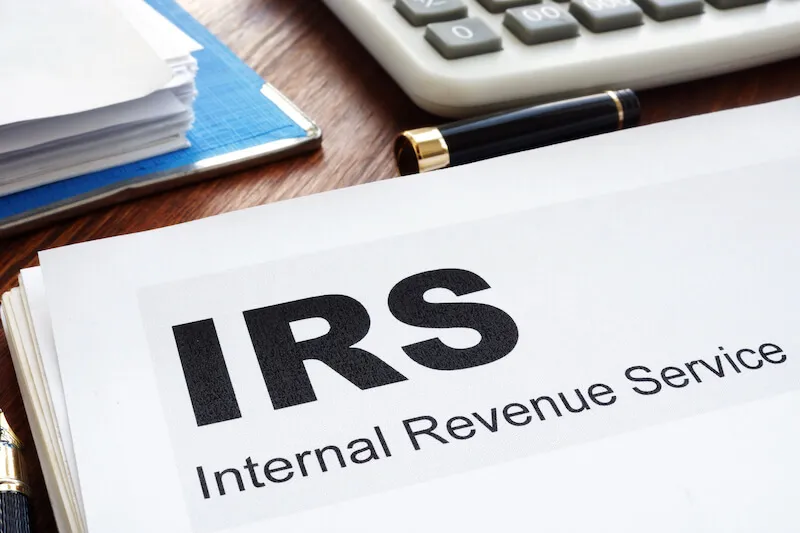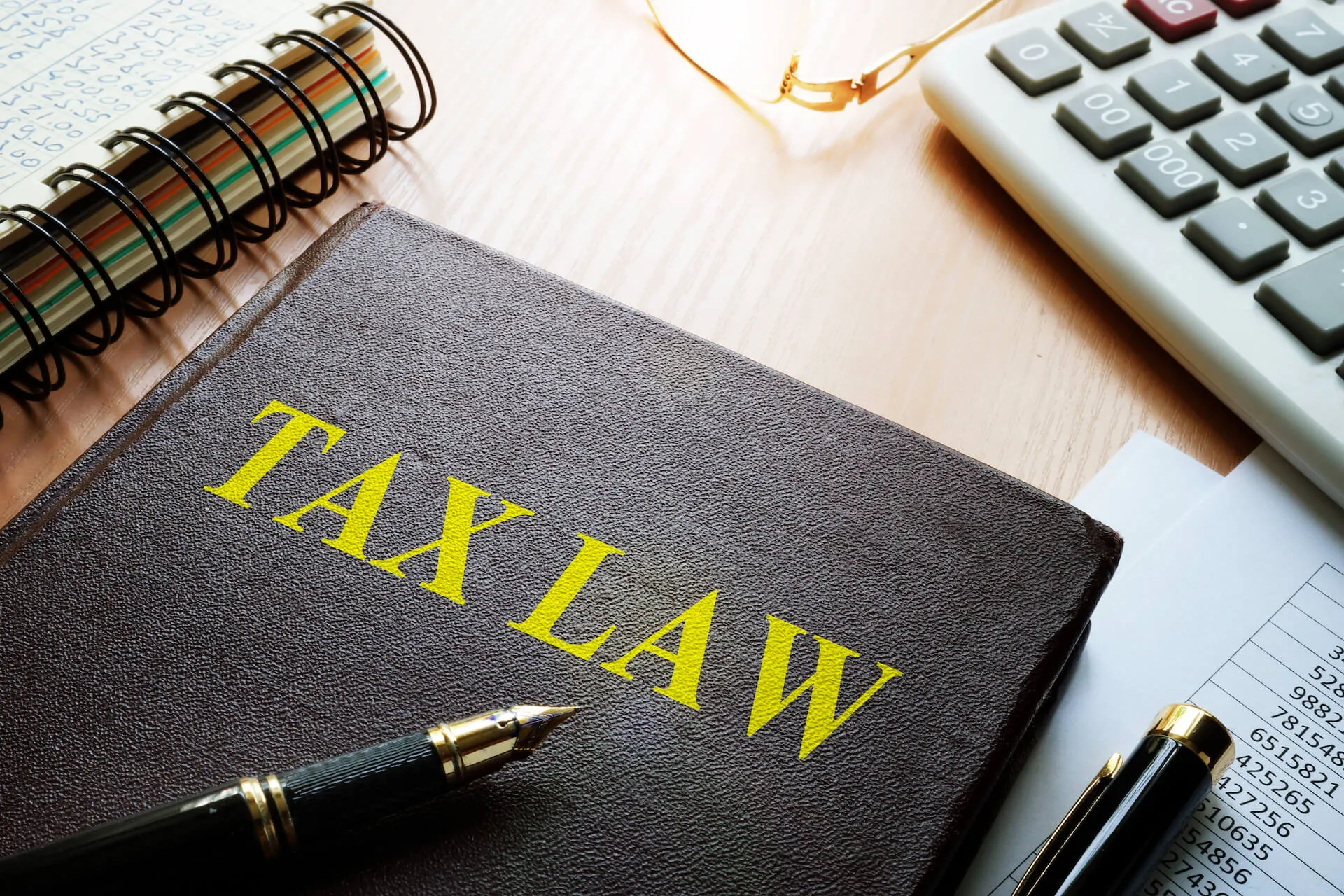 Having debt with the IRS is a huge fear for many Texas citizens. When you owe the federal government money, you risk facing wage garnishments, a property lien, having your bank accounts cleared, and being left with very little monthly income. The longer you cannot pay your tax, the more penalties and fines you risk.
Having debt with the IRS is a huge fear for many Texas citizens. When you owe the federal government money, you risk facing wage garnishments, a property lien, having your bank accounts cleared, and being left with very little monthly income. The longer you cannot pay your tax, the more penalties and fines you risk.
The IRS takes strict measures to ensure that citizens pay their debts, and it is difficult to get them reduced. You will need to take your own measures to prove that you cannot make payments without risking economic hardship.
If you owe money to the IRS and are worried that you cannot pay it back, speak with a tax professional who can help you get your tax debt reduced. Dealing with the IRS is problematic, and they dislike negotiating with taxpayers to reduce tax debt. A tax professional can help by advising you on your options to reduce debt, petitioning your case to the IRS, and working out a payment plan on your behalf.
Ronald Arthur Stearns, Attorney at Law.
Ronald Arthur Stearns, Attorney at Law. is a highly experienced and skilled tax attorney that has been helping clients in Texas for over 26 years. He deals with all kinds of tax issues, including IRS debt, tax returns, payment plans, audits, debt forgiveness, and bringing cases to tax court.
At our law firm, we care about taxpayers and we want to ensure that your best interests are protected. We will use our experience to negotiate, advise, and represent your case to the highest possible standard. We want to avoid financial hardship and ensure that you have enough money to live while dealing with debt.
To get your debt reduced, you need the backing of an attorney that knows how to negotiate firmly with the IRS and understands how their rules operate. Ronald Arthur Stearns, Attorney at Law has the experience and skills required to ensure that you get your tax reduced and are not left in financial hardship.
Contact our law firm today to discuss your case at 210-853-2135.
Tax Debt Explained
Tax debts happen when the IRS decides you owe them money. All citizens are required to pay taxes each year, and the onus is on them to file tax returns. When you do not file your returns, or make a mistake in the process, the IRS can decide that you owe them taxes.
You could owe them because of a failure to file tax returns, a change in the tax rate, a mistake on your tax returns, or applying for tax credits or tax deductions you are not qualified for. Whatever the reason is, you can be sure that the IRS will come after you to pay back taxes.
Taxpayers will receive notification in the mail about taxes owed to the federal government, and there will be instructions on how to pay this back. If you do not contact the IRS regarding the debt you owe, you will be subject to tax penalties, including interest, federal tax liens, and wage garnishments.
Penalties For Not Paying Tax Liability
The IRS introduces strict penalties and fines on those who do not pay their bills on time or do not submit their tax returns. If you do not pay taxes to the IRS, you will start to incur fines and penalties from April 15, which is the day taxes are due. The most common types of penalties taxpayers incur are failure to pay penalties and failure to file penalties.
- Failure to pay – 0.5% of your IRS tax debt for each month or part of the month that you do not pay your tax bill. The maximum fine is 25% of your tax bill.
- Failure to file – 5% of your tax owed for each month or part of the month that you do not file your tax return. The maximum fine is 25% of your tax bill.
If you receive notification from the IRS regarding your tax debt, such as a Notice Of Intent To Levy, and you do not respond to this letter within 10 days, failure to pay penalties will increase to 1%.
So, if you cannot pay back the IRS debt for a few months and do not arrange a payment plan or communicate with the IRS, you risk increasing your tax debt substantially. If you owe $10,000 in debt, and you receive a maximum fine of 25%, you could have to pay back $12,500.
Statute of Limitations on Tax Debt
Taxpayers should know there is a statute of limitations on all debt owed to the federal government, known as the Collection Statute Expiration Date (CSED). Once this date has passed, you no longer have a duty to pay back tax debt.
However, there are some ways that this time limit can be extended, such as entering an IRS payment plan, an offer in compromise, or a period of non-collectibility. The IRS is known for contacting taxpayers outside of the limitation period, requesting that they pay back taxes, and setting up a payment plan, which pauses the clock on the tax debt they owe.
If you believe that the statute of limitations has passed on the initial debt that you owe to the IRS, contact a tax professional. They can assess whether you are required to pay back tax debt and can help get your debt partially absolved if you are coming close to the end date.
Extending The Statute of Limitations
To know whether you have passed the statute of limitations, you need to figure out the collection statute expiration date. Although you may just look at your Notice of Deficiency and calculate 10 years from that date, it is usually not that simple.
There are certain factors that can pause the timer and extend the statute of limitations. Ultimately, whenever the IRS cannot collect unpaid tax debt from you, the timer will be paused.
Filing For Bankruptcy
Filing for bankruptcy prevents the IRS from recovering tax debt from you. When you file for bankruptcy, the process can last from four months up to a year, depending on the situation. The IRS must then wait 6 months after the process is complete before collecting tax debt from you.
This process stops the statute of limitations timer. So, if your bankruptcy process took 6 months, the statute of limitation for debt forgiveness will be extended by one year.
Collection Due Process Hearing Request
If you have received a federal tax lien on your property to recover unpaid tax debt, you reserve the right to submit a hearing request to an IRS officer. Federal tax liens are claims by the government to your property when you have unpaid taxes. You have 30 days to file a hearing requesting that the levy or lien be stopped.
During a Collection Due Process (CDP) hearing, your attorney will explain why you will face hardship with a lien and submit an alternative method to pay taxes you owe, such as an installment agreement. While awaiting a CDP hearing and until a decision is reached, the IRS will pause the clock on your statute of limitations. This extends the collection period before debt forgiveness.
Leaving The Country
If you leave the country for over 6 months, the statute of limitation clock will be stalled temporarily. When you return home, the clock will begin again. So, it is not possible to leave the country while waiting for your tax debts to pass.
Get Tax Debt Reduced
 Most people that have a debt with the IRS cannot pay it back in a lump sum payment. Because of this, many people incur fines and penalties, which can add up to a huge tax debt after some time. If you are struggling to get by with your current monthly salary and deductions from the IRS, you may wonder, will the IRS reduce your tax debt?
Most people that have a debt with the IRS cannot pay it back in a lump sum payment. Because of this, many people incur fines and penalties, which can add up to a huge tax debt after some time. If you are struggling to get by with your current monthly salary and deductions from the IRS, you may wonder, will the IRS reduce your tax debt?
Although often difficult to do so, the IRS will reduce your debt in certain circumstances. There is information on the IRS website on how to apply for tax reductions. However, you will need the help of an experienced tax lawyer to help you apply successfully.
Offer in Compromise
Offer in compromise (OIC) was a program introduced to help taxpayers reduce the amount of tax that they must pay back. To get an offer in compromise, you must prove to the IRS that you cannot pay your tax debt in either a lump sum or a monthly payment agreement, as doing so would cause economic hardship.
When assessing whether to grant an OIC, the IRS will assess your net income and your basic living expenses. If paying for both monthly expenses and the full rate of the tax debt would put you in a bad financial situation, they may permit an offer in compromise. You must also have made all or any required estimated payments and filed all tax returns to qualify.
Many people believe they can get pennies on the dollar through this program. However, less than 40% of these offers are accepted by the IRS each year. To be accepted, you must ensure to submit the correct documentation and forms, and sufficient evidence proving your current financial status. A tax lawyer can help you with this process to increase your chances of success.
Installment Agreements
Installment agreements, or payment plans, allow those who owe a tax debt to pay back their debt in a periodic payment plan over a certain amount of time. An Installation Agreement allows taxpayers owing up to $50,000 in debt to take out a long-term payment plan while having their financial information protected. People can pay back less money each month over a longer period, which can be a more sustainable tax burden for many people.
Unfortunately, an installment agreement does not reduce the debt that you owe, however, it gives you more time to pay it back. Interest and penalties will still be added to the tax you owe under a payment plan, and you may end up paying more. However, it can buy you some time to avoid a tax levy or property lien.
Partial Payment Installment Agreement
A partial payment installment agreement (PPIA) allows individuals to pay back their IRS tax debt through smaller payments over a longer time. The IRS reserves the right to conduct reviews on your finances, and they can decide later that you must make higher payments if your finances improve.
The major problem with the PPIA program is that you must try to pay your debt using all of your assets and equity before you qualify. However, it is easier to be accepted into the PPIA program and make smaller monthly installments than the OIC program.
Currently Not Collectible Status
Currently not collectible status or the ‘hardship program’ relieves taxpayers of paying fines and penalties on their tax debt. If you qualify for this status, the IRS cannot garnish your wages, place a property lien or tax levy on you, or clear your bank account for tax debt. You are still required to pay back taxes, however, it prevents tough measures from being introduced to you.
To qualify for currently not collectible status, you prove that by paying back taxes you owe, you could not afford to pay for reasonable living expenses. Living expenses include food, house products, cleaning products, apparel, credit card payments, and other reasonable expenses.
The IRS will decide your eligibility based on your current income, which should be less than $84,000, your total monthly payments, and whether you have sufficient proof of economic hardship.
Getting CNC status is not a solution to your tax debt, however, it will buy you some time to set up installment plans or a payment agreement to settle your tax for a fair amount. Under CNC status, the government may still apply interest and penalties to your debt (although less), review your financial situation yearly, and file a Notice of Federal Tax Lien on your property.
Innocent Spouse Relief
Sometimes, it may be possible to get your debt completely forgiven. This means that you do not have to pay back money to the government. Innocent spouse relief is one of these forgiveness programs. Under this program, a spouse or ex-spouse that has been caught up in bad joint tax returns can avoid paying taxes.
The individual must prove that their spouse or ex-spouse failed to report income, incorrectly reported, or improperly claimed tax credits. They must also prove they had no knowledge and are innocent, and apply within 2 years after the IRS came after them for the tax errors.
You will need sufficient evidence to prove your innocence and show the IRS that you should not be liable for the debt. An attorney can help you apply for this relief and gather supporting evidence on your behalf.
Does The IRS Forgive Debt?
The Internal Revenue Service (IRS) is the organization responsible for collecting taxes from US citizens. If IRS agents determine, through a tax assessment or otherwise, that you have not paid enough tax and you have an outstanding balance, you will owe tax debt. In rare circumstances, however, the IRS may forgive your tax debt.
The onus is on taxpayers to assess whether they have tax debt relief options and whether there is an option for them to get their debt forgiven. The IRS is tough on taxpayers and may use harsh methods to recover tax debt, including wage garnishment and property liens. Hiring a tax professional is the best way to ensure that your rights are protected, and they can assess whether you are eligible for tax debt forgiveness.
What Happens If I Don’t Pay Back Taxes?
 Taxpayers are often tempted to ignore notifications from the IRS and try to avoid paying back debt. However, it is vital that you reply to any notification from the IRS about a debt that you have. If you try to ignore your IRS debt or do not take steps to pay it back, through tax relief or a payment plan, you may be subject to a tax lien or levy, which can cause significant financial hardship.
Taxpayers are often tempted to ignore notifications from the IRS and try to avoid paying back debt. However, it is vital that you reply to any notification from the IRS about a debt that you have. If you try to ignore your IRS debt or do not take steps to pay it back, through tax relief or a payment plan, you may be subject to a tax lien or levy, which can cause significant financial hardship.
Tax Lien
Liens affect your property, credit rating, and any business assets that you have. A lien over your assets or property means that the IRS reserves the right to take any money you make from selling or dealing with these assets to pay back your debt.
A lien on your assets can seriously affect your ability to earn credit, and you may struggle to get a credit card or apply for a loan. Landlords and employers will also notice any liens that you have, which can affect your rental and employment contracts. The only way to completely clear a lien is by paying back the debt you owe.
Tax Levy
A tax levy is more severe than a lien. With a levy, the government can seize your property or assets to pay back the debt you owe. Depending on the situation, the IRS may place a levy on your property, bank accounts, or, most commonly, wages.
With wage garnishment, the IRS takes money from your paycheck each month to pay back taxes, reducing your monthly income. They may also garnish federal payments, including social security payments and your tax refund. If the levy is on your financial accounts, you may see your retirement account, investments, bank account, and life insurance reduced to pay back debt.
In occasional circumstances, the IRS may also seize your property, including your home residence, to pay taxes you owe. You may remove a levy by demonstrating that it causes you severe economic hardship. An attorney can help you negotiate with the IRS to set up a payment plan, reduce your tax debt, and prevent a levy from being introduced.
Contact Tax Attorney Ronald Arthur Stearns, Attorney at Law. Today!

Owing debt to the federal government can cause significant financial hardship. Many people are facing increased financial struggles, with rising costs of living, higher bills, and more financial insecurity. When you owe debt on top of all of this, it can be quite overwhelming.
Fortunately, there are some ways you can get your debt with the IRS reduced to minimize financial difficulties. An experienced tax lawyer can help you set up payment options that fit with your monthly budget and allow you to pay the IRS the money that you owe at a lower rate. Depending on your situation, you could qualify for a lower payment plan or complete loan forgiveness.
Ronald Arthur Stearns, Attorney at Law. is an aggressive tax attorney fighting against the IRS and creditors to protect taxpayers’ rights. He has a deep understanding of tax law and regulations and can help you contact the IRS to get your debt reduced. Our law firm cares about protecting your rights and preventing your life from being upturned with debt.
We will use our significant experience negotiating and getting fair deals for our clients to reduce your taxes and set up a fair payment agreement on your behalf. If you are eligible for loan forgiveness, we will fight aggressively to ensure you get what you are owed.
Contact our law firm today for an initial consultation at 210-853-2135.
